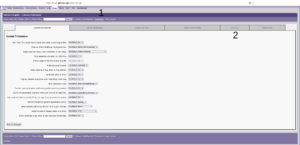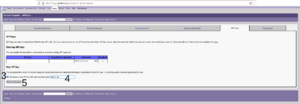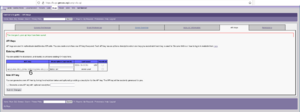Pybugz
Pybugz is a command line interface to Gentoo Bugzilla. It is geared towards Bugzilla users that find the web interface inefficient.
It's features include:
- Searching bugzilla
- Listing details of a bug including comments and attachments
- Downloading/viewing attachments
- Posting bugs & comments
- Making changes to existing bugs
- Adding attachments to bugs
Installation
Emerge
Install the www-client/pybugz package:
root #emerge --ask www-client/pybugzDocumentation
Please read man 5 pybugz.d for configuring pybugz. The README on GitHub has general informations. Help about using bugz is available with:
user $bugz <subcommand> -hThe subcommands are: attach, attachment, connections, get, modify, post, search.
Easy configuration for bugs.gentoo.org
pybugz comes with a predefined profile for bugs.gentoo.org except for a required API key. Create an API key in the web interface and write it to the suitable place(s).
- Visit the API keys tab and login if prompted
- Generate a new key and write an optional description
- Edit ~/.bugzrc and add:
~/.bugzrc[Gentoo]
key=<api key>
- Do this for every user, e.g. root, <user>
Check if everything works with:
user $bugz search arm64Examples
Attach plain text file $log to bug nr 12345:
user $bugz attach -c "text/plain" -d "build log" 12345 $logSearch for version bump bugs assigned to maintainer-needed:
user $bugz search "version bump" --assigned-to maintainer-neededGet more info about a bug nr 12345:
user $bugz get 12345Mark bug 12345 as fixed and send a custom message:
user $bugz modify 12345 --fixed -c "This bug was closed in #<commit_hash>"Mark bug 12345 as invalid and send a custom message
user $bugz modify 12345 --invalid -c "Not reproducable"


